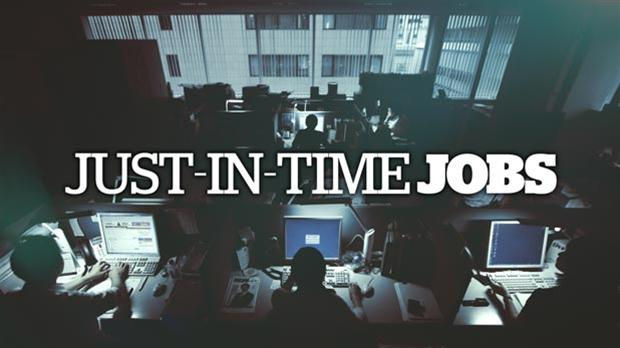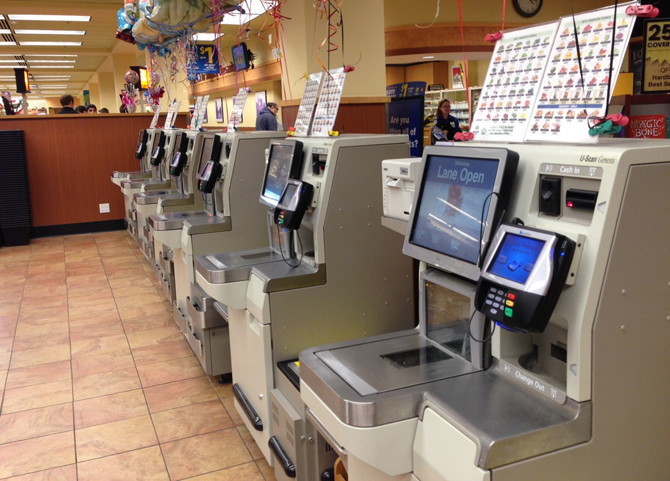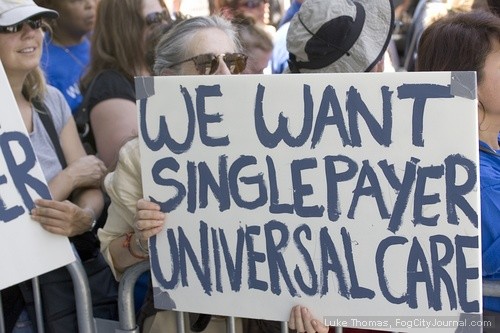Comments (2)
Amy Fullman
Every point is true to the core.
Kelly Draper
Some thoughtful points

Frederick Taylor has a lot to answer for. The father of "efficiency management", Taylor made a name for himself in the early twentieth century by consulting with companies, offering his services to improve a new metric that he had devised called "productivity". He would go onto factory floors with stopwatches and clipboards and would record exactly how long it took a given laborer to accomplish a given task. He would then take the best of these measurements and declare that this was where his factory workers should be producing at, proceeding to remove all "unnecessary" breaks or downtime for those workers.
The factory owners loved him, because it gave them the leverage to demand higher efficiency from their workers based upon the "scientific" methods of Taylor. It also reinforced the notion that workers, when not otherwise kept in line with the whip, would become lazy and attempt to steal all the hard-earned money that these factory owners made by "wasting time".
Ironically, while the factories did improve productivity in the short term, the amount of accidents, turnover and anger fueled labor riots through the 1920s and 30s. By then, Taylor had turned is his efficiency management practice into one of the worlds first successful management consultancies, and it was only in hindsight that the damage that he wrought really became obvious.
Unions emerged that enabled collective bargaining, that negotiated not only for better wages but saner working conditions. They also made it harder to fire employees without cause and with no compensation. However, what made unions vulnerable was that they could only do so by enforcing strikes and work actions, and this in turn meant that union dues became a point of attraction for both organized crime and company owners who found themselves paying more for labor.
Since the 1930s, unions have been under continuous attack, and the percentage of Americans that belong to a union have dropped from north of 50% in the 1950s to about 6% in the intervening decades, to the extent that unions have ceased becoming a major factor in the economic (and hence political) landscape.

Automation has played a part in this extinction, but it is worth understanding that for decades now the ideal form of labor for most businesses is one in which employers pay only for the most productive part of an employee's time. In this view, workers would have only one employer, could be called in at any time to work for however long was necessary, and could be paid as minimal a wage as possible. This Just-In-Time (JIT) workforce vision is frequently called "Work For Hire".
Yet there are fundamental problems with work for hire, problems that are increasing as this mode of work - the most prevalent form of employment in the gig economy - becomes routine. The first is exclusivity. Anyone who has consulted for a living knows this problem. Work for hire often places limits on being able to work for more than one employer at a time, and even where this isn't the case, most employers expect that they can call on a contractor at any time without regard to availability. This makes scheduling multiple jobs (a complex task at the best of times) almost impossible. This blocking problem generally means that working a second or third job becomes harder, so even if there is no specific legal bar on having multiple contracts, in practice few people can pull it off without some kind of support system.
Another primary difference between a gig job and consulting is that in the latter there is some ability to control both when and where the work gets done. A writer, for instance, has more flexibility in their schedule because this kind of work can be done remotely, but most "freelancers" are bound to both a workplace and a work schedule. Because that work schedule is all too often set arbitrarily with little time to react, such work creates dead zones in people's schedules that are either utilized by transportation to and from different work or are effectively unproductive for the employee.
A similar mechanism where the gig economy represents a transfer of power from worker to employer is the shift towards the expectation that equipment owned by the gig employee be used to perform the services involved. The gig economy is in essence the rise of brokered dispatch services, where the company places the onus of ownership of cars, houses, cleaning supplies and tools, uniforms, computers and so forth on the employee, while charging a significant overage for getting the job in the first place. As the key benefit that the dispatchers have is in providing lower cost services, this often translates into net losses for the employees, but because the dispatchers control the market, the ability of the employee to recoup their own investment into "their" business is minimal.
The primary benefit of full time work is its reliability - you know how much money you will make each week, know how much you can budget, and as a consequence have much easier access. People who have a full time job can maintain a good credit rating. Once you are in the gig economy, your credit rating will drop dramatically, because you no longer have the reliability of payment. Even if you make high five or low six figure incomes, it will come in fits and starts, and you will have periods where you have no money coming in for months on end.
This volatile cash flow model has become the standard mode of working for most people, and because you don't have the same access to the credit markets as you would when working "full time" to smooth out those variations, you have less real buying power because you are paying a penalty for that variability of income.
Health insurance has also become a stealth weapon against gig workers. Agencies may provide a health insurance plan, but it is typically minimal, and it is contingent upon working a set number of hours. One reason there is such a massive pushback on universal health insurance by business is because controlled, affordable health care increases worker mobility, and that threatens the JIT model of a captive workforce. When workers are interchangeable and the investment in them by business is low, then providing health care at all is "bad business" because the workers are easily replaced, but as the investment in individuals increase (because of the need for specialized, high demand skills), so too does the need to lock in employees so they find it harder to leave.

Automation does play a factor in the gig economy as well, but it should be noted that, despite the rising hysteria of robots replacing workers the reality is that the impact of automation has largely been the furtherance of a just-in-time labor philosophy. The reality has been that most of the major disruptions brought about by the computer/networking revolution have already taken place, and there is now rising push-back by consumers on attempts to further that agenda.
Cashiers should have been replaced by automated checkout stands by now, yet the reality is that most self-cashout registers are underutilized - people prefer going to a person to make sure their accounts are settled. Automating wait staff is a non-starter for most restaurants, even where the technology exists to do so. It is my prediction that self-driving taxis will actually take decades to replace taxi-drivers, because people want a human being in control in unfamiliar situations (a taxi driver is also tour guide and human conduit if things go wrong). Similarly, truck drivers will not be replaced by autonomous driving systems, because drivers also handle security, fueling, emergency repairs and other operations.
I see the gig economy overall going through a stage shortly where those who both provide the labor and those who consume the products of that labor begin to fight back. Ironically, I think that one of the main effects that the current anti-immigrant pushback is going to do is dry up the supply of those people willing to accept the minimal conditions that the worst offenders of the gig economy are taking advantage of.
It will be harder to find farm workers, hotel cleaning staffs and fast food restaurant workers - areas that traditionally have been claimed by immigrants because Americans generally didn't want to take them, and this will push wages upward. Already Uber and others like them are souring the appetite for "entrepreneurial" gigs as the reality of poor wages, punitive working conditions and so forth become obvious, and this in turn is leading towards a repricing of the value of the dispatchers in such a scheme, as this often tends to be one of the easier parts of a distributed services business to recreate.

The fact that the Republican Congress is fighting such a massive backlash on dismantling the Affordable Care Act points to a similar pushback. A universal health care system, coupled with a single payer model that better regulates overall costs, is becoming politically feasible. It's noteworthy that most countries that now have a universal system went through exactly the same stage where they had separate privatized care that eventually became too greedy and caused the system to collapse, as premiums become unaffordable to businesses and individuals alike. There are signs that this is happening in the United States now, despite considerable propaganda to the opposite. Once such a system becomes established, one of the main reasons that people have for staying with overbearing and abusive companies falls away.
Similarly, predatory credit lending regulation (currently under attack) makes it harder for lenders to create unreasonable terms of repayment on loans (including the business loans that most smaller businesses need to better control cashflow).
Even in areas where the gig economy makes sense - such as for writers, artists, musicians and programmers - there are signs that pricing power is beginning to come back into play. Both journalism and the book writing sector all but collapsed between 1990 and 2010, as existing publishers sought out free content - but the reality was that value is dependent upon both quantity and quality. Many of those publishers went out of business, while others figured out that their roles had changed and refactored their business accordingly. There is value in good writing, in editorial curation, in copy editing, and there is always value in reliability, and the more successful new writers, artists, etc. are now learning how to price their work accordingly.
In many respects I think that its worth looking at what has happened in the last forty years as being something analogous to the rise of printing in the sixteenth century in Europe. Printing was a huge innovation, one that brought massive social change with ramifications that were felt for centuries. Yet as printing presses spread rapidly through Europe, their introduction caused long-standing institutions to collapse, and forced a rethinking about how we determine value.
The same processes are underway now, though I think we're closer to the end of the most volatile period, rather than the beginning. The barriers to entry for people to make a living have dropped, which caused a surge of people to enter into various fields and created a temporary glut of labor in many fields, sending down wages. Yet employment has always been a winnowing process, where people discover whether they can be competitive or not in certain fields, and as people find their niche or abandon it in favor of others, it becomes easier to start raising your own rates in response as you provide more value.
I should probably bring up the topic of Universal Basic Income (UBI) here. I expect it to eventually emerge, but it's likely going to be a contentious topic in the United States for decades before it happens (I see it happening in Canada far sooner). It is highly stimulating to the economy (far more so than massive tax cuts for the wealthy which have historically accelerated economic decline), but culturally it requires us to move past a Calvinist view of the government. Short of an outright split between the Red and Blue states, I just don't see that happening. I'll have more to say about that in a separate post.
At the same time, as the percentage of people in the gig economy rise relative to those that are already ensconced in the corporate world, so too does the political clout of those people. This is an incredibly important point. Businesses exist to provide value to its customers ... not its shareholders. Too many large businesses today have forgotten that point, have become wedded to the notion that the shareholder has a prior right even ahead of the customer, which increasingly is seen by these behemoths as being inconveniences.
Yet the reduced cost of entry that the last forty years has brought due to the innovations from the web, from cleaner energy, from biomedical advances, from a profound advance in our understandings of materials engineering, all of these are making it easier to topple the existing institutions, but they are also forcing us to redefine how we account for (and compensate for) value in our economy. I see what's happening in the United States today as being the last hurrah of a dying economic regime. The elections of 2018 should prove interesting.
Every point is true to the core.
Some thoughtful points
Kurt is the founder and CEO of Semantical, LLC, a consulting company focusing on enterprise data hubs, metadata management, semantics, and NoSQL systems. He has developed large scale information and data governance strategies for Fortune 500 companies in the health care/insurance sector, media and entertainment, publishing, financial services and logistics arenas, as well as for government agencies in the defense and insurance sector (including the Affordable Care Act). Kurt holds a Bachelor of Science in Physics from the University of Illinois at Urbana–Champaign.
Leave your comments
Post comment as a guest